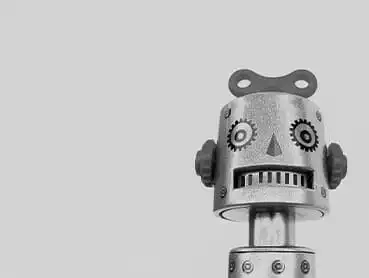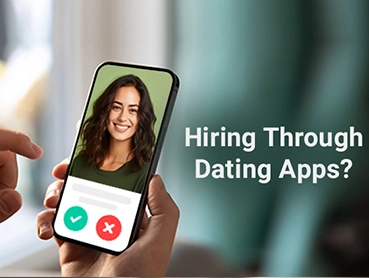Everything RPOs Need to Know About A.I. Recruiting

It’s 2017. Better known as “the year of the algorithm”, according to industry thought leader, John Sullivan. Earlier this year, Sullivan asserted that the recruiting function will finally “begin the shift away from a decision model based on past practices and intuition and toward data-driven decision making.” Otherwise known as, A.I. recruiting. (If you need a basic lesson on A.I. read this and this).
We’re seeing and hearing about the transformative changes of artificial intelligence-based recruiting every day, aren’t we? Conferences, exhibitor booths, flourishing HR tech companies, hefty investment announcements in A.I. technology from big names across the world. Naming it “the year of the algorithm” definitely wasn’t in vain.
The Harvey Nash Human Resources 2017 Survey found that 15 percent of HR leaders polled from 40 countries said artificial intelligence and automation are already impacting their workplace plans. Another 40 percent said they expect A.I. and automation to affect their plans within two to five years.
So, what’s the deal? Why are so many business leaders and recruiting gurus jumping on the “A.I. recruiting train”?
Why does talent acquisition need A.I. recruiting?
Let’s hear from 6 top industry leaders about the subject:
Today’s candidates require a consumer-quality experience, similar to what they receive when shopping online,” said Roopesh Nair, president and CEO of Symphony Talent, a leading recruitment marketing company based in New York City. Personalization is the key to capturing their attention. Thanks to omnichannel solutions and artificial intelligence, data is getting more precise than ever and can be gathered from every point of contact with a candidate to provide a more relevant, consistent and personalized experience.”
Claire McTaggart, founder of SquarePeg, says, “HR Tech platforms that source and vet candidates are increasingly attractive, not only from a cost perspective but because advancements in machine learning mean that all of the data that is generated from sourcing and vetting candidates is used to get better over time. With a recruiter, you are relying on the talent and decision-making of an individual, whereas tech platforms or algorithms use data on past successes or failures to learn over time, so each search should be more effective than the last at a fraction of the cost.”
Alan Guinn, CEO of The Guinn Consultancy Group says, “Those who don’t do their research and make the time investment to understand their client, company, future-forward industry trends and culture needs will fail to look good to internal and external clients. It’s a consistent pattern across the industry. The end result: The placement fails. The current system is plagued with gaps in information and lack of clarity as to what skills are really required for a role. It is in this exact weakness that data and machine learning can help fix a problem that has held the industry down for years.”
Byrne Mulrooney, CEO of Los Angeles-based Futurestep, a Korn Ferry company says, “There is a critical need for organizations to broaden their views to source and hire talent with diversity being a crucial consideration. By diversifying their workforce, businesses can utilize a currently untapped pool of talent to help plug the skills gap.”
Jason Roberts, global head of technology and analytics for Randstad Sourceright says, “Now, more than ever, A.I. technology is changing the way companies source, engage, acquire and manage talent. These tools are providing HR with the ability to capture workforce data, and are critical to building the business intelligence and insights needed to drive overall business growth.”
Jack Spain, technology guru with over 40 years of experience in the field says, “AI recruiting offers the potential to truly disrupt our traditional recruiting process, reducing candidate sourcing cycle time by 40-80% to permit recruiters to prioritize candidate engagement. The resulting productivity impact results in increased speed in access to higher caliber candidates; increased speed in the decision-making process; and ultimately, a competitive advantage for the enterprise.”
There you have it. There is an unrelenting need for change in talent acquisition, and we’re only hearing from a few industry leaders. As technology has evolved, processes have changed, and candidate expectations have grown. Our recruiting mindset has to evolve right along with it. A.I. is paving a way for better recruiting, happier candidates, and data-driven companies. Without it, companies will continue to fall behind and ultimately become irrelevant and uncompetitive.
RPO Growth and Why They Will Lead the Way
So, what does increased candidate expectations and evolving processes mean for Recruitment Process Outsourcing (RPO) firms? It means that companies everywhere are scrambling to keep up with candidates’ desires and making quick, data-driven placements. That’s a little overwhelming for companies with limited resources, an abundant client base, or small budgets. Organizations will be desperately looking for a sustainable solution to meet these demands because they simply don’t have the resources to handle all their recruiting needs on their own. They’re essentially looking for an extension of their HR staff to handle more demanding and time-consuming roles like:
- Talent acquisition strategy development
- Requisition management
- Sourcing/talent mapping
- Candidate pipeline development
- Selection
- Employer branding
- Market intelligence and analytics
- Technology solutions
- Industry experience and expertise
Organizations will look to create value through a high-quality recruitment function like an RPO that will meet these demands more quickly and efficiently than they could, allowing them to stay competitive.
RPO adoption has grown by 32% since 2011 and the recruitment process outsourcing market grew 16% in 2016 to reach a cumulative market size of US$2.85 billion.
Brendan Browne, vice president of global talent acquisition at LinkedIn says, “With the talent market becoming more competitive, companies are switching focus from what employees need to what employees want.” Kevin Wheeler, founder and president of the Future of Talent Institute says, “Agencies will have to include RPO or they will not survive, except a small sliver of executive search firms.” The RPO market is going to see continued growth and their number one value proposition will be not only meeting immediate hiring challenges, but creating long-term solutions for talent acquisition.
Okay, let’s break it down now, y’all (currently doing the cha cha slide). RPOs run a complex business model. They have to manage, measure, track, and support multiple customers and their specific service level needs. They are also continually having to find creative ways to attract and retain talent. Which means, they’ll have to innovate to keep up with growth and client expectations. As we’ve learned, RPOs will also be NECESSARY for recruiting growth in the industry. That means RPOs will need to have all the essential tools for maintaining client expectations and demands like an A.I. recruiting tool that is tailor-built for a complex business model and unique RPO processes.
RPOs need to be prepared for the wave of new business and the demands that come along with it. They will NEED a reliable A.I. recruiting tool that can do the heavy lifting for them, while providing data-driven insight to create personalized content that will enhance the candidate and client experience.
Final Thoughts
Just to reiterate, “The HR technology market is undergoing one of the most disruptive years it has seen this decade. The HR technology industry is on the precipice of a total reinvention”, says the principal and founder of Bersin by Deloitte, Josh Bersin.
Global Director of People Analytics Solutions at IBM, David Green, says, “21st Century HR isn’t about playing it safe; it’s about being bold and forward-thinking. It’s about capitalizing on technological advances, new thinking and applying a data-driven and analytical approach to inform people decisions.”
RPOs consume the majority of the recruiting market. Their work will be what we see for years to come in the employment industry. They desperately need “another ‘arm’, additional sense, and a tool to operate in a world that is exponentially growing with new innovations.” RPOs can’t keep up with industry demand, client expectations, and candidate satisfaction completely alone. They NEED an aid. And that aid is artificial intelligence.
The recruiting revolution and reinvention isn’t coming. It’s here – demanding our attention. And it’s happening as you’re reading this article. Take a minute to think about your business. Your team. Your recruiters. Your processes. Your weaknesses. Your strengths. Your potential. Your hopes. Your dreams.
Now, take a step towards creating a data-driven and winning recruiting model that your team desperately needs to stay competitive. Your recruiters need better tools. Your processes need more insight. Your strengths need capitalizing and your weaknesses need eliminating. You need a reinvention to act as a catalyst for your potential and one that will move you a step closer to your hopes and dreams as a company.
The industry is changing. Data is now at our fingertips, and there’s a million ways to decipher, analyze, and track it. Knowledge is power. And power creates change. We’re experiencing a new realm of recruiting – one led by an irrevocable change. Companies that are innovating are thriving.
Data-driven recruiting is here and it’s making a difference. Will you?
Want to Learn More about our RPO software? Here’s a glimpse.





